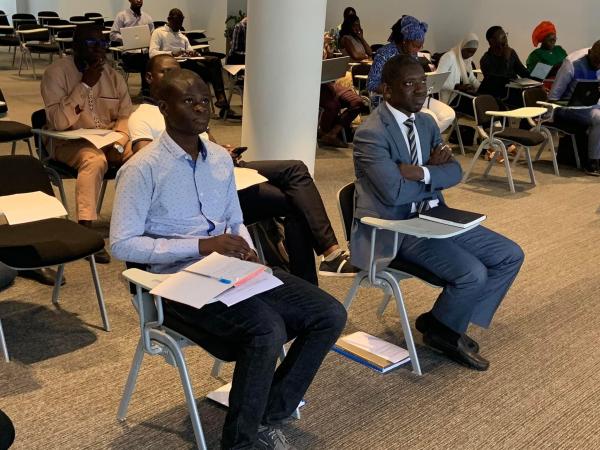The Dakar Water Hub: a hub – and laboratory – for the 9th World Water Forum’s Blue Deal
By Tobias Schmitz
28 Oct 2022 by The Water Diplomat

Senegal - and the other states sharing the waters of the Senegal and Gambia river basins - have provided one of the best-known examples of hydro-diplomacy and international cooperation around shared waters, leading to the well-deserved leadership role played by Senegal in hosting the 9th World Water Forum (WWF). The theme of the water forum, i.e., “water security for peace and development” is a signal of Senegal’s leadership role in developing a blueprint for peace and development through transboundary cooperation. Perhaps less well known, but equally important, is the Dakar Water Hub, which aims to be the regional flag bearer for the commitments of the ‘Blue Deal ‘ announced at the conclusion of the 9th WWF. The Hub, due to be launched in 2021 but delayed to 2022 due to the Covid 19 pandemic, is to build a reference framework in Africa to catalyze cooperation, inclusive dialogue, governance, and the development of innovative solutions on water. The Pôle Eau Dakar (PED), as it is known in French, will take forward the concrete list of flagship projects identified in the context of the Blue Deal also aims to help implement the proposals of the 9th World Water Forum in Senegal. The PED revolves around four strategic axes, i.e., networking, capacity development, sharing of knowledge and innovations, and support for the follow-up to the 9th World Water Forum.
After a founding phase from 2018 to 2021 which included feasibility studies and market analysis, the PED has developed its first ten-year strategy, defining the Cluster's niche in the context of emerging issues of shared water governance in Africa. The strategy – which is divided into two phases of five years each – includes six areas of intervention i.e., firstly, practical demonstration initiatives relating to conflict prevention/resolution and cooperation and promotion of peace. Secondly it will strive to mobilise key actors to promote the effective implementation of hydro-diplomacy and emerging standards for the governance of shared water resources. Third, PED aims to build the capacity of actors and institutions for the management of shared waters in the prevention of conflicts, the promotion of cooperation and the practice of hydro-diplomacy. Fourth it is dedicated to the production and sharing of knowledge for decision support on cooperation, and lastly it will monitor the implementation of the conclusions of the World Water Forum held in Senegal in March 2022.
A prominent output the Hub is working on currently is the development of an Atlas on the major scientific questions related to water in West and Central Africa. The purpose of this atlas is to review the state of scientific knowledge on water resources and then to define, on this basis, perspectives for scientific research in terms of orientations for research and development programs on these resources. The scaling up of knowledge about the resource, of dialogue and consultation in its management, makes it possible to defuse the factors and uncertainties which could spark conflict and the risks and disasters linked to water. These include the intensification of water shortages, water stress, unsustainable livelihoods in rural areas, rapid growth of urban water demand combined with unplanned urbanization, and intersectoral competition over access to water. It is argued that the production of knowledge and the development of the capacities of water stakeholders are essential for better management and planning of water resources. PED also promotes an interdisciplinary approach, decompartmentalizing knowledge on water and the dissemination of good practices in hydro-diplomacy.
In 2022, PED published a report on emerging issues in shared water management in Africa. This is a collective work that analyzes fifteen cases of disputes as well as successful or promising examples of interstate cooperation around shared water resources in Africa. These case studies have made it possible to identify and analyze the factors facilitating or hindering the outbreak of crises or the search for formulas of cooperation and peaceful coexistence. On this basis, the book draws lessons that can be useful for the coordinated and sustainable development of the continent's water resources and the promotion of cooperation, peace and security. In addition, PED contributed a chapter to the First Report (2022) of the Global Observatory on Water and Peace, which was launched at the 9th World Water Forum in Dakar in March 2022
